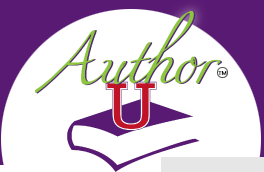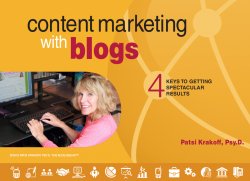 Guest author Jon McCulloch emailed me from Ireland the other day in response to my posts about hypnotic writing as a sales copy technique. I asked Jon to share with everyone here his thoughts about Joe Vitale’s Hypnotic Writing book:
Guest author Jon McCulloch emailed me from Ireland the other day in response to my posts about hypnotic writing as a sales copy technique. I asked Jon to share with everyone here his thoughts about Joe Vitale’s Hypnotic Writing book:
Hi Patsi,
Your review of Joe Vitale’s "Hypnotic Writing" was interesting, although you might enjoy another’s perspective.
Vitale does have a lot of interesting stuff to say, although he’s done the usual thing and hijacked a lot of pretty basic concepts we’ve known for a long time and just hung another label on them ("hypnotic"). A smart thing to do, of course, but let’s not pretend he’s invented anything new.
But my biggest objection to the book is the pseudo-science he employs to "prove" his claims. He’s by no means alone in this, but since he’s in the spotlight he’ll be the one to "shine", so to speak.
First, for example, in several places he implies he can write copy to "compel" people to buy.
This is arrant nonsense. Extraordinary claims require extraordinary evidence to back them up. Yet the evidence is not there. He cites no studies or research, relying instead on testimonial and anecdotal evidence. That’s not science.
 If hypnotic writing was THAT powerful, he’d score 100% conversions every time. He doesn’t. No one does. More to the point, if NLP and hypnosis were "magic bullets" there would be only one copywriting product out there and everyone who had it would be a star.
If hypnotic writing was THAT powerful, he’d score 100% conversions every time. He doesn’t. No one does. More to the point, if NLP and hypnosis were "magic bullets" there would be only one copywriting product out there and everyone who had it would be a star.
He’s also deeply unscientific in some of his assertions, falling into the trap of "survivor bias", "confirmation bias", "selective memory", and downright fantasy.
Take Chapter 35, in which he claims to be able to "control" readers’ minds. At the end of the chapter he claims he’s "embedded a command" in you, and you should "notice what you do next because that action will reflect the command I secretly embedded in you".
Hmm. Right.
What I DID notice was he doesn’t ever actually tell us what that command was, so it becomes an unverifiable hypothesis, and that, I’m afraid, makes it scientifically and logically invalid.
He has a great get-out clause, though: "And now your objections are handled, you have little choice but to act on [the embedded command] or not". That’s meaningless and in fact logically incorrect: you have NO choice about acting on it or not, since they are the only two options.
Then in Chapter 36, "The One Hypnotic Command That Always Works", he claims the "hypnotic command" of the title makes the reader read the chapter. How can he possibly know this? What about readers — like me — who read the chapter simply because it’s the next one in the book? And what about readers who DON’T read the chapter and therefore never see his claim? A classic case of "survivor bias": his claim is validated only for anyone who reads the chapter.
And it’s a disprovable claim, to boot. It’s like the charlatan who claims he KNOWS you’re suppressing a memory but you don’t know it because you’re suppressing it.
Having said all that, there is some very good advice in this book and it’s well worth reading if you want to learn to write great copy or hone your skills.
He correctly points out the most important thing is the list, then the offer, then the copy. I wish more people would "get" this, and spend their time developing relationships rather than trying to "sell" all the time. Clients who come to me wanting me to "write a letter" to solve all their problems are most unhappy to discover "bad copy" is probably the least of their problems.
No amount of good copy is going to save a bad business. And if you get the fundamentals handled — your relationships, your products and your services — you’ll find you don’t even need great copy or even particularly good copy. It can make a difference, yes; but it’s not a panacea.
Good business is a process, not an event. Just like success in general.
It’s sad, because Vitale buries his great advice in hype, unprovable assertions and pseudo-science and he really doesn’t need to.
There’s enough good-sense in his words AND valid science to back up much of the psychology to make this snake-oil completely unnecessary.
About Jon McCulloch:
For more information about Jon and his marketing options and expertise visit www.jonmcculloch.com.
What do you think about this? Agree, disagree? Hit the comment link below and share.
Related posts:
Seduce and persuade your customers with Words
Hypnotic Phrases: Why they work














Recent Comments